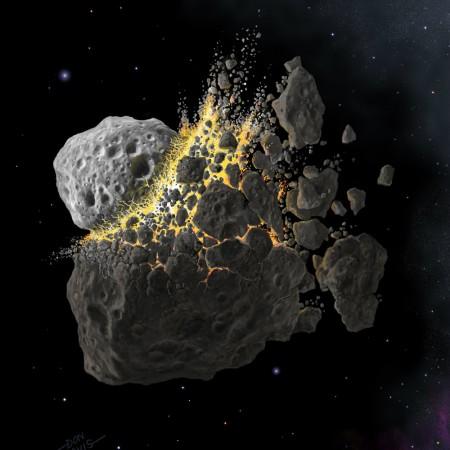
Asteroid 2006 QQ23, a rogue space body much bigger than the Eiffel tower, narrowly missed its collision with the earth on Sunday. The asteroid, which was speeding at 10,400 miles per hour, passed within 4.6 million miles of earth and even a small change in its trajectory could have brought devastating effects on the planet.
In the wake of the incident, Danica Remy, president of the California based B612 non-profit foundation, revealed that Earth will be one day hit by a rogue space body that will result in severe catastrophic effects.
In a recent talk with the NBC News, Remy revealed that it is only a matter of time before earth gets hit by a mega asteroid. He added that the impact of such an asteroid hit will be several times stronger than a nuclear explosion.
However, Remy made it clear that such an impact from rogue space bodies will only create regional impact and not planetary level devastation. Even though the asteroid will cause casualties in the affected area, the entire stability of global transportation, networking and weather will be negatively impacted due to the hit.
This is not the first time that a top expert is giving a chilling warning about future asteroid hits. A few months back, Dr Iain McDonald, a scientist at the Cardiff University's School of Earth and Ocean Sciences had predicted that Earth will be inevitably hit by a doomsday asteroid one day or the other. McDonald believes that catastrophic events like doomsday asteroid hits are not confined to the past and it may happen in the future too.
Popular physicist Neil deGrasse Tyson, during a podcast titled 'Cosmic Queries: Asteroids and Comets', also shared similar views. Tyson revealed that the end of the world will most probably happen due to a gigantic asteroid hit.
"It is an intriguing and under-appreciated fact that asteroids and comets may have been the bringers of life, if not the ingredients of life, but perhaps even life itself. And yet, they can also serve as harbingers of doom for the very life that they brought to the planet," said Tyson.
In order to combat these future threats, NASA is now busy developing a planetary defence weapon to protect the Earth from deep space threats. NASA's planetary defence weapon aims to hit the approaching space body using a large craft so that the collision trajectory of the object can be changed.














